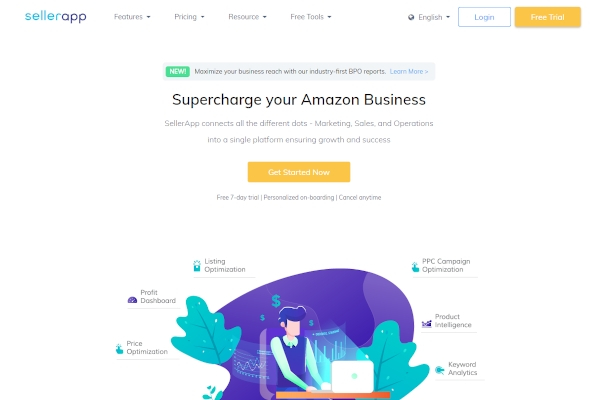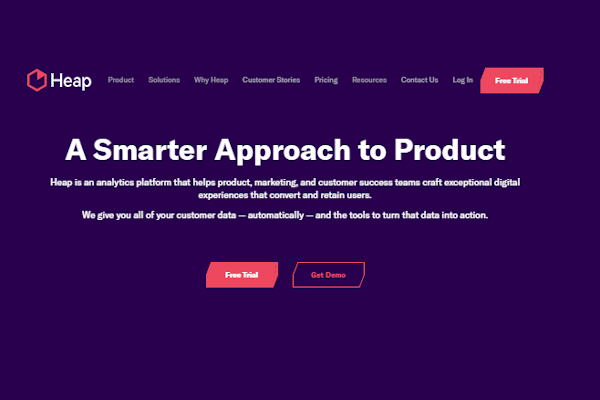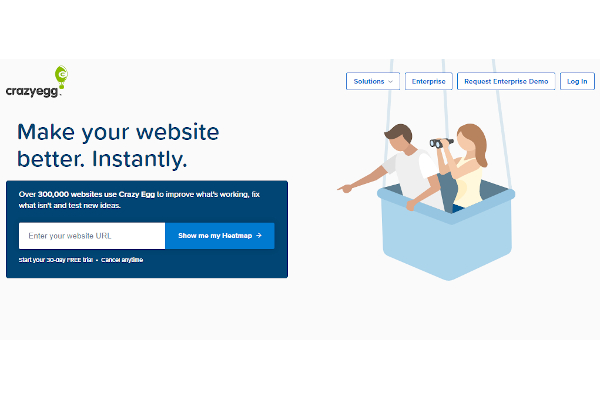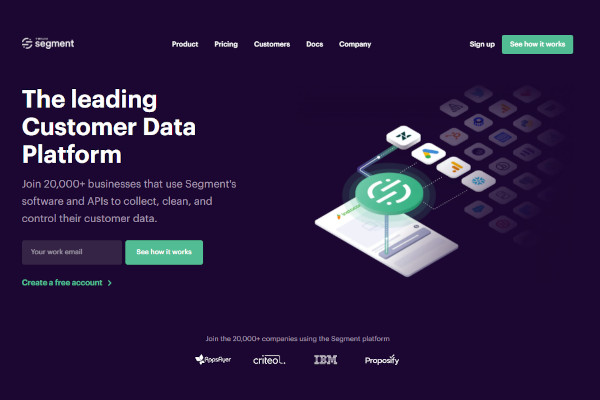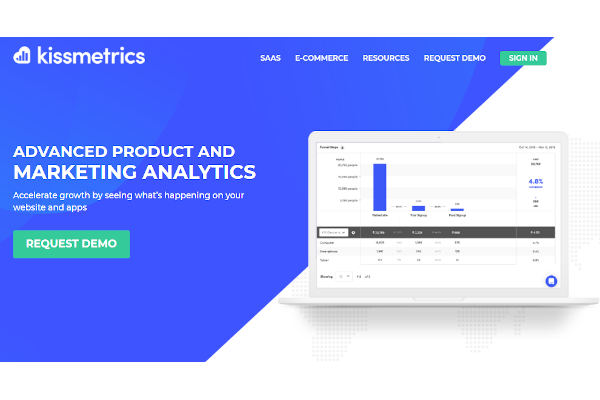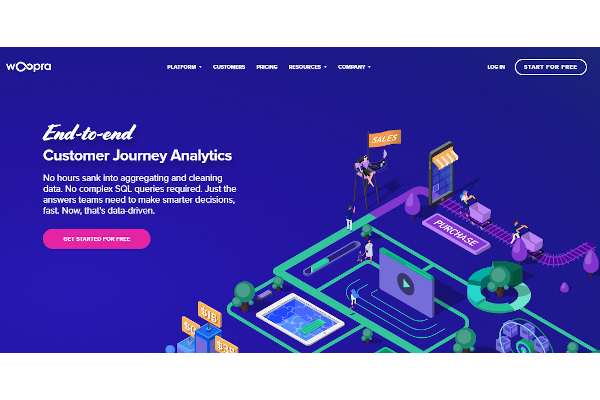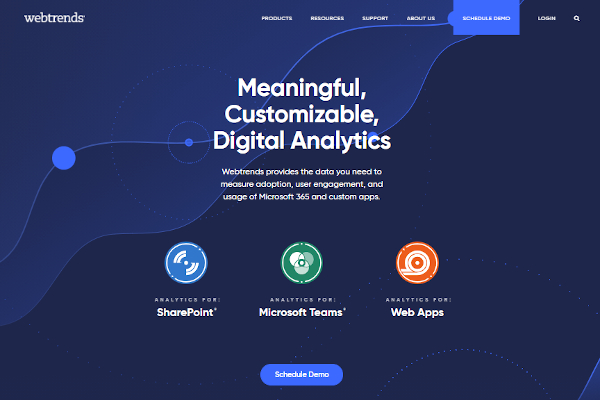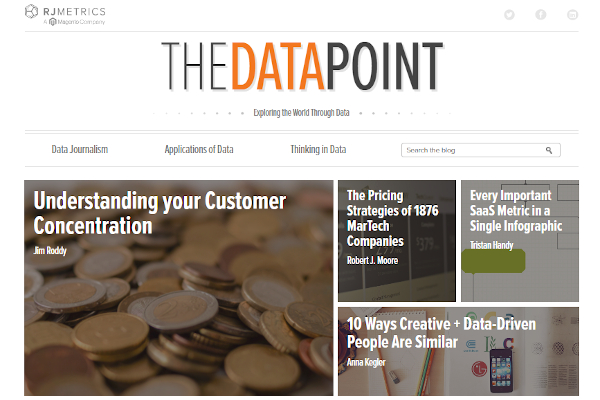As the eCommerce industry becomes more competitive, it also becomes more demanding. If you do not want to get left behind, you need to grow continuously, and what else can help you achieve that goal other than gathering intel? Gain business insight and use it to propel your business. Streamline the complexities that come with it by utilizing extensive eCommerce analytics software.
19+ ECommerce Analytics Software
1. Looker
2. Shopify
3. Yotpo
4. SellerPrime
5. Brightpearl
6. Heap
7. Crazy Egg
8. Segment
9. Mixpanel
10. Kissmetrics
11. Adobe Marketing Cloud
12. Woopra
13. Google Analytics
14. Webtrends
15. Clicky
16. StatCounter
17. FullStory
18. RJMetrics
19. IXXO Multi-Vendor Software
20. Octopus
What Is ECommerce Analytics Software?
ECommerce analytics software is a digital solution that helps online vendors and retailers gain insight into their business. It collects data analytics and measures metrics from varying platforms and integrates information into a centralized database. For the data to be more digestible, this software converts it into visual reports. When you use this software, you can track website visitors and identify customer behavior.
In addition, you can use this software to track the availability of products and manage inventory. This analytics platform also has digital tools to streamline financial reporting and cost tracking. Integration with other eCommerce platforms is also possible with this software.
Benefits
When you equip this software in your online business, you can access and track data in real-time. Also, it will help you identify issues and weaknesses in your online business, allowing you to respond to them quickly. In addition, because it digitizes data collection, you can reduce workload and cut costs.
Features
There are a variety of eCommerce analytics solutions in the software market. They have overlapping functionalities, but most of them have varying specializations. That said, they can support your business differently. Single out which software is most suited for your online business and filter your options effectively. Consider essential factors such as supported digital devices, software package prices, and business size compatibility. The ideal software for you would be the one that provides services that align with your needs. Here are features that most of the best performing solutions in this category have:
- Customer journey mapping tools
- ECommerce dashboard
- Powerful reporting tools
- Web analytics functionalities
- Social media analytics tools
- Intuitive interface
- Forecasting tools
- Third-party applications integration
Top 10 ECommerce Analytics Software
1. Google Analytics
In this analytics solution, you can access user interaction tracking and time-on-site tracking tools. They have 66 billion dollars in revenue and have 139,995 employees.
2. Shopify
When you use this software, you can utilize eCommerce management and cataloging functionalities. They have 7,000 people working for them and have a revenue of 2.93 billion dollars.
3. Looker
This eCommerce data analytics software has campaign management and behavioral analytics tools. They have a generated revenue of 240 million dollars and have 800 people in their team.
4. Segment
Segment is a data management platform that has data analysis tools and behavioral targeting capabilities. They have 629 employees and have a generated revenue of 144 million dollars.
5. Yotpo
This software provides its users with tools for tracking sales engagement and customer segmentation. They have 640 employees working for them and have 100 million dollars in annual revenue.
6. Heap
This web solution has functionalities for campaign tracking and conversion tracking. They have a generated revenue of 27 million dollars and have 198 employees in their team.
7. Webtrends
Webtrends provides its users with usability testing and unmoderated testing functionalities. They have 23.6 million dollars in generated revenue and have 163 employees working for them.
8. Brightpearl
Data synchronization and cost tracking tools are examples of features in Brightpearl. They have a generated revenue of 19 million dollars and have 150 employees.
9. Kissmetrics
Functionalities for customer journey mapping and pageview tracking are accessible in this marketing analytics platform. They have generated a revenue of 5.1 million dollars and have employed 30 employees.
10. Woopra
Woopra offers predictive analytics and site search tracking features to its users. They have 1.5 million dollars in revenue and have ten people on their team.
FAQs
What are essential tips for analyzing eCommerce data?
One of the essential things you need to do before starting your analysis is gather scattered data from varying marketing platforms and other applications and organize it into one database. You can do it by utilizing eCommerce analytics solutions. Also, you should understand what the data represents and incorporate the knowledge you will gain into your decision-making and business planning activities.
Why is eCommerce analytics essential?
Gathering eCommerce analytics will let you know the current trends and expectations of your target market. Also, it can help you identify existing gaps in your business and provide insight into the best way to fill them in to enhance customer experience. Not only that. The data you gathered can help you strategize on how to improve customer retention and customer satisfaction.
What are metrics to consider for measuring eCommerce success?
To track the current standing of your business, you need to measure various essential metrics. These metrics include but are not limited to conversion rate, customer engagement, customer retention rate, website traffic, average order value, cart abandonment rate, and customer lifetime value. Also, consider essential marketing analytics such as social media engagement, email collection rate, and content views and shares.
The foundation of successful businesses is sound decisions. That said, ensure to leverage data analytics to make customer-centered and data-based decisions. With the development of digital technology, you can now eliminate the taxing manual princesses of intelligence gathering. Customize customer experience for more seamless services and gain a sharp competitive edge. Take the first step to growing your online business today by securing the best eCommerce analytics software for you.
Related Posts
10+ Best Chemical Software for Windows, Mac, Android 2022
12+ Best Vulnerability Scanner Software for Windows, Mac, Android 2022
4+ Best Bundled Pay Management Software for Windows, Mac, Android 2022
10+ Best Trust Accounting Software for Windows, Mac, Android 2022
10+ Best Patient Portal Software for Windows, Mac, Android 2022
13+ Best Virtual Reality (VR) Software for Windows, Mac, Android 2022
12+ Best Bed and Breakfast Software for Windows, Mac, Android 2022
15+ Best Resort Management Software for Windows, Mac, Android 2022
14+ Best Hotel Channel Management Software for Windows, Mac, Android 2022
12+ Best Social Media Monitoring Software for Windows, Mac, Android 2022
10+ Best Transport Management Software for Windows, Mac, Android 2022
10+ Best Other Marketing Software for Windows, Mac, Android 2022
10+ Best Top Sales Enablement Software for Windows, Mac, Android 2022
8+ Best Industry Business Intelligence Software for Windows, Mac, Android 2022
10+ Best Insurance Agency Software for Windows, Mac, Android 2022




